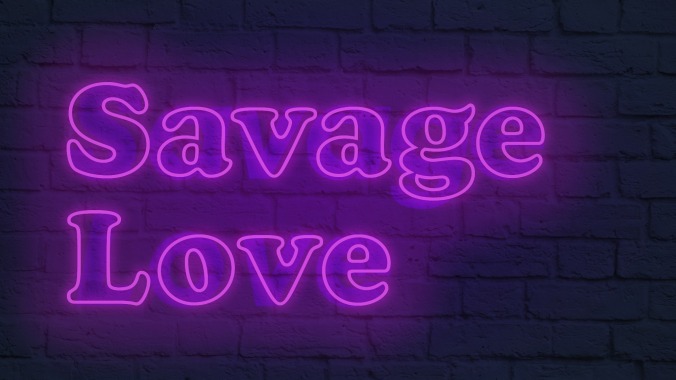This week in Savage Love: Quickies

I have a quick question about bisexuality. What if one has a preference for dating straight individuals? As a straight woman, I am only interested in dating straight men. Is that some kind of phobia? Or is it okay for that to be a preference? I’ve always wanted to ask someone this but I’m afraid of being thought of as having a phobia.
Nervously Asking Dan Something
I think you’re fine, NADS, so long as you’ve taken a moment to think about why you’re burdened with this “preference.” Our sexual attractions, orientations, and preferences are easily distorted and limited by prejudice. If you reflect on what might be at the root of your “preference” for men who are straight (or for men who’ll tell you they are), NADS, you might be able to open yourself up to more partners. But a person can reflect day and night for decades and still feel the same way. At the very least, though, we can all be thoughtful about our erotic and/or sexual biases, take responsibility for them, be considerate about how we express them, and—perhaps most importantly—do our best not to transmit them. I’m not into shame, but not finding a particular group of people attractive for whatever reason is something we can keep to ourselves—not just to avoid doing harm to people we aren’t attracted to, but to avoid passing our erotic biases and limitations on to the next generation.
My wife and I (lesbian moms together) have been invited to her cousin’s wedding. And she’s marrying the son of a former Republican statewide official who, in the early 2000s, turned the power of his state against gays, especially gay parents. His son hasn’t renounced his views—in fact, he’s converted his fiancée, my cousin-in-law, to Trumpism. If it’s relevant, they’re more country-club homophobes than rednecks, they want to be seen as mainstream and pleasant, and they now live in a very liberal city and hide their views so they’re not pariahs. Not sure how to handle—simply not responding? Citing his father’s views in the RSVP? Never going to any family function where they will be, ever? I really don’t want my kid around these people, but also, I feel like maybe I should go to set an example. But then, wearing my best suit and tie to a Trump wedding deep in a red state makes me worried for my physical safety.
What Would You Do?
I would send my regrets along with a broken toaster and the wrong receipt.
I have a cult fascination with the film Withnail And I. OK, I love this film. But I am troubled by the perspective this film offers on homosexuality. It’s not what one would call a “modern perspective.” I believe the film’s portrayal of homosexuality can be seen as funny or alarming or a cultural reference point. I think it’s all three. My son is gay, and with some introductory apologies, I want to tell him to watch the film. Apologies for “trial ballooning” something like this with you, Mr. Savage, and I know you are not the standard-issue gay, as if such a thing exists. But have you seen the film? And if so, your thoughts?
Friend Of Withnail
I’ve never seen the film but a quick Google search of “Withnail And I” and “homophobic” brings up nearly 100,000 results. Apparently one of the film’s main characters (Uncle Monty) is a “predatory homosexual” who makes a series of unwelcome advances on one of the male leads. “Is the film homophobic? Yes, undoubtedly,” Philip Caveney writes at Bouquets & Brickbats. Richard Griffiths, the actor who plays Monty, “somehow manages to evoke genuine sympathy for a tragic character who is, more than anything else, lonely—but all the talk about buggery by force does make you feel rather uncomfortable.” The film was released in 1987—which in no way excuses the homophobia, of course, but you’d be hard-pressed to find a popular film released in 1987 that wasn’t deeply homophobic either by commission (the hateful portrayal of gay characters) or by omission (the complete absence of gay characters). Still, the film doesn’t portray homosexuality, FOW, it portrays an individual homosexual. It was doubtless a damaging portrayal at the time, as there were so few other representations of gay characters on TV or in film back then. But viewed now—viewed at a time when there are more representations of gay people in film and television than ever before—it doesn’t have the power to do the same damage. So go ahead and recommend the film to your son, FOW, with the appropriate qualifiers and apologies.
 Keep scrolling for more great stories.
Keep scrolling for more great stories.
